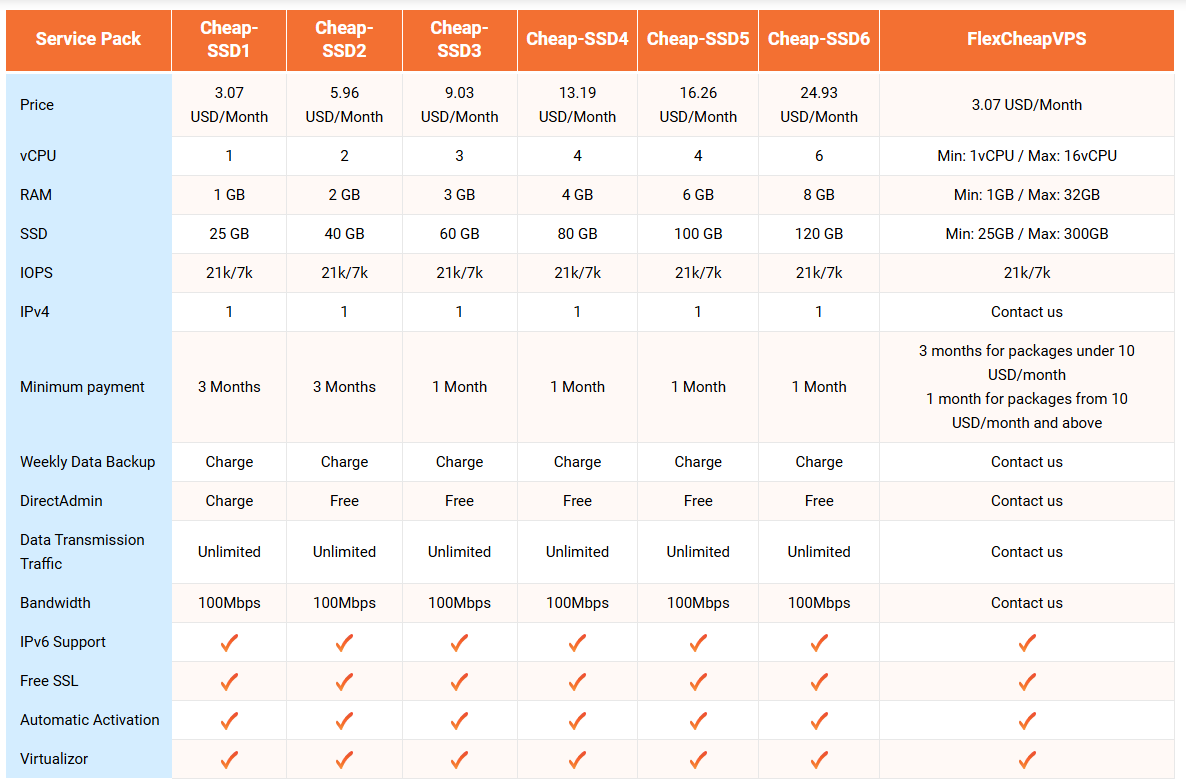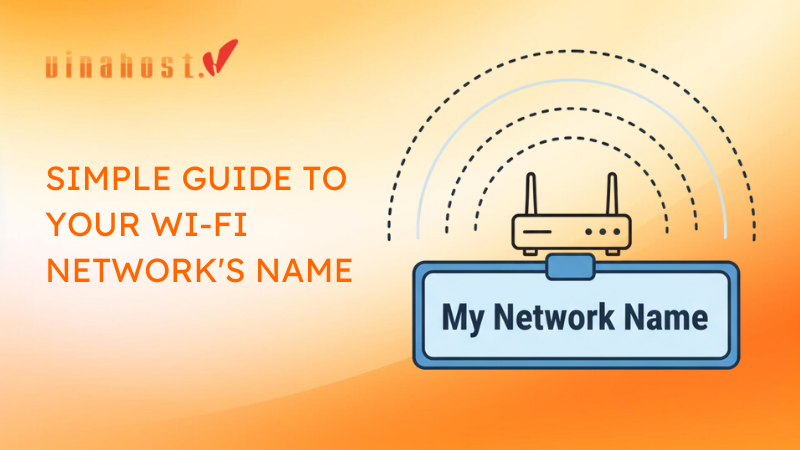What is Offshore VPS? Offshore VPS hosting refers to hosting services where a virtual private server (VPS) is located in a country different from your own. This service is often chosen because of its benefits such as favorable privacy laws, low costs, and less stringent regulations. It is used for a variety of purposes such as website hosting, server operations, and protecting sensitive data, making it an ideal choice for businesses and individuals who need a high level of control and security.
1. What is Offshore VPS Hosting?
Offshore VPS hosting is a virtual private server (VPS) service located in a data center in a country different from where you live or conduct business. This service is often chosen for its benefits, such as better privacy protection, content freedom, and stronger legal support.

Read More: What is SSD VPS Hosting? | Everything You Need to Know
2. How Does an Offshore VPS Work?
An Offshore VPS (Virtual Private Server) works similarly to a standard VPS. Here’s a step-by-step breakdown of how it functions:
- Virtualization Technology
An Offshore VPS is a virtualized server created using technologies like KVM, VMware, or OpenVZ. A single physical server in an offshore data center is divided into multiple virtual servers. Each VPS operates independently with dedicated CPU, RAM, storage, and bandwidth. This ensures that users have a private environment similar to a standalone server.
- Hosting in a Foreign Data Center
The “offshore” aspect refers to the server’s physical location. The VPS is hosted in a country different from the user’s own, often chosen for privacy, legal protections, or reduced censorship. Users access the server remotely, typically via secure protocols like SSH (for Linux) or Remote Desktop Protocol (RDP) for Windows.
- Operating System and Applications
Users can install an operating system (Linux, Windows, etc.) and configure applications just as they would on a local server. Users can deploy web servers, databases, or specialized software to meet their needs. Full root or administrative access ensures that the server can be managed entirely by the user.
- Privacy and Anonymity Features
Offshore VPS providers often include privacy-enhancing features. Providers may require little personal information during account setup, ensuring anonymity. VPS is hosted in countries with strong data protection laws, safeguarding user information from government surveillance or legal requests.
- Maintenance and Security
Offshore VPS providers handle physical server maintenance and often offer additional services like:
- DDoS Protection: Safeguards against distributed denial-of-service attacks.
- Regular Backups: Ensures data recovery in case of accidental loss.
- Server Monitoring: Ensures server stability and optimal performance.
3. Common Use Cases for Offshore VPS Hosting
Offshore VPS hosting is used for a variety of purposes, primarily for privacy, and flexibility. Here are some common use cases:
- Hosting websites with sensitive content: If your website contains content that may be subject to censorship (such as political, controversial), offshore hosting helps you avoid these restrictions. Offshore VPS is popular with individuals or groups who want to protect freedom of speech.
- Ensuring data privacy: Offshore VPS helps protect the data of businesses or individuals, especially in countries with strict data laws. Offshore VPS with minimal identity verification helps you maintain confidentiality when running your website or business.
- International Business Hosting: Offshore hosting can help improve speed and reduce latency for users in different regions of the world. Some countries may offer tax benefits and reduce legal issues for businesses.
- Cryptocurrency Hosting: Offshore VPS helps cryptocurrency projects avoid strict regulations in their country. Some cryptocurrency wallet services use offshore VPS to ensure security and privacy.
- SEO Tools and Web Crawling: Offshore VPS helps crawl websites without being blocked, especially when multiple IP addresses are needed. SEO businesses use offshore VPS to run automated tools that need to be anonymous or avoid restrictions from search engines.
- Run a VPN or Proxy Server: Offshore VPS is often used to run a VPN or proxy server, ensuring privacy when accessing the internet or restricted content.
- Online Gambling and Betting: Offshore VPS helps gambling platforms avoid strict regulations or bans on gambling in some countries. Offshore VPS provides fast and stable connections, supporting a smooth gambling experience.
- Game Servers: Offshore VPS helps reduce latency and improve speed for players worldwide. Offshore VPS allows games to run without content restrictions from local authorities.
Read More: What is Linode VPS? | Everything You Need to Know
4. Key Benefits of Offshore VPS Hosting
Offshore VPS hosting offers many benefits, especially for users who want more control, security, and flexibility. Here are the key benefits of this service:
4.1. Increased Security
Offshore VPS providers often offer advanced security measures such as DDoS protection, firewalls, and regular backups to protect against cyber threats. Your VPS is isolated from other users, reducing the risk of being affected by security issues or attacks on other websites on the same server.
4.2. Enhanced Privacy
Hosting in a number of offshore locations helps protect your data from government surveillance and data storage regulations in your country. Many offshore VPS providers require little identifying information, allowing users to keep their activities and services anonymous.
4.3. Optimized Performance
Offshore VPS providers often have high-speed networks, ensuring fast connections and low latency for users in certain regions. You can adjust the CPU, RAM, and storage of your VPS to optimize performance for your specific needs, ensuring efficiency for resource-intensive tasks.
4.4. Tax Advantages
Some offshore countries offer tax benefits, including low or no taxes on hosting services, which can help businesses reduce operating costs. Hosting in a country with favorable tax policies can help companies save money, especially in an international business environment.
4.5. Scalability
Offshore VPS services are highly scalable, allowing you to increase resources such as RAM, CPU, and storage as your website or business grows. Many offshore VPS providers offer hosting plans that can be easily adjusted to meet changing needs.
4.6. Flexibility
You have full control over the software, applications, and services installed on your VPS, allowing you to customize the environment to your specific needs. Offshore VPS supports multiple operating systems (Linux, Windows, etc.), making it easy for you to choose the one that best suits your project.
4.7. Reliability
Many offshore VPS providers offer high uptime guarantees (typically 99.9% or higher), ensuring your website or service is always available with minimal downtime. Offshore data centers often have redundant systems (power, cooling, backups) to ensure continuous operation even in the event of a failure.
4.8. Cost-Effectiveness
Offshore VPS services can save you money due to favorable exchange rates, lower operating costs in some countries, or low taxes. Despite the low cost, offshore VPS still offers high-performance, customizable solutions that offer superior value compared to traditional hosting services.

Read more: Top 15 Best VPS Hosting Providers
5. How to Choose an Offshore VPS Provider
Choosing the right Offshore VPS provider requires careful consideration of several key factor
Data Center Location
When choosing an offshore VPS provider, the location of the data center is important. These places have favorable privacy regulations. Additionally, if the data center is close to your users, your website speed will be faster and latency will be lower.
Privacy and Anonymity
Privacy is one of the biggest benefits of offshore VPS. You should choose a provider with a no-logs policy to protect your personal information. Some providers even allow you to register anonymously, meaning you do not need to provide personal information during the registration process, helping to protect your anonymity and avoid surveillance.
Security Features
Security is an important factor when choosing a VPS provider. Look for a provider that offers strong security features like DDoS protection, firewalls, and data encryption. These tools will help protect the server from threats and keep your data safe. Also, make sure that the provider regularly updates the server software to avoid attacks.
Guaranteed Performance and Uptime
VPS performance is important. A reputable provider will guarantee at least 99.9% uptime, which will keep your website up and running. They should also have fast servers and stable network connections, especially if you have a website with many users or applications that require high performance.
Customer Support
Customer support should always be available and reliable. Choose a provider that offers 24/7 support via live chat, email or phone. Make sure the support team has the expertise to resolve issues quickly and efficiently.
Scalability
Offshore VPS services can scale easily as your needs grow. As your website or business grows, you can upgrade the CPU, RAM or storage without any hassle. This allows you to scale your service without changing servers.
Cost and Value
Cost is always a factor to consider, but it’s also important to consider what you get for your money. Look for a provider that has clear pricing and no hidden fees. Compare the price with the features you get to make sure you’re getting the best value. Some providers even offer money back guarantees so you can try the service at low risk.
Backup Options and Control Panel
Regular backups are important to protect your data. Choose a provider that offers automatic backups to avoid data loss in the event of a disaster. Also, check to see if the provider offers an easy-to-use control panel to manage your server.
Legal Compliance
When choosing an offshore VPS provider, you need to make sure that they comply with the laws and regulations of the country where the data center is located. Each country has different regulations regarding data protection, content restrictions, and the types of services allowed on the server. Before signing up for the service, read the provider’s terms of service carefully to understand what is allowed and what is not. While offshore hosting offers more freedom, you still need to make sure that you are not violating any laws, both local and international, when hosting certain types of content or services.
VinaHost is a prominent hosting provider based in Vietnam, offering a range of services including web hosting, VPS hosting, dedicated servers, and domain registration. Known for our reliable performance and strong customer support, VinaHost caters to both local businesses and international clients seeking hosting solutions in Vietnam. We provide competitive pricing, a variety of hosting plans, and user-friendly management tools.
Key Features of VinaHost:
- Performance: We ensure high uptime, fast speeds, and stable performance with their advanced infrastructure, making it suitable for businesses with growing online demands.
- Security: With robust security features such as SSL certificates, DDoS protection, and regular backups, VinaHost provides a secure environment for users.
- Support: VinaHost is known for offering excellent customer support, with a knowledgeable team available 24/7 to assist with technical issues and inquiries.
- Flexible Packages: From shared hosting to high-performance VPS and dedicated server solutions, we offer flexible plans that cater to both small businesses and large enterprises.

Also We provide
6. FAQs
6.1. What is the difference between a regular VPS and an offshore VPS?
The main difference between a regular VPS and an offshore VPS lies in the location of the data center. A regular VPS is usually hosted within the country or nearby areas, and is subject to the regulations of that country. Meanwhile, an offshore VPS is hosted in another country, often in areas with good privacy policies, less government interference, and lower costs. Offshore VPS is often chosen because it offers greater privacy, security, and content freedom than a regular VPS, which has stricter regulations.
Read More: What is the difference between VPS and Dedicated Server?
6.2. Is offshore VPS legal?
Offshore VPS hosting is legal, as long as you comply with the laws of the country where the server is located. Regulations on data protection and online activities vary from country to country. However, you need to make sure that the content and activities you host on your VPS do not violate the laws of the country where the server is located.
6.3. Is offshore VPS secure?
An overseas VPS can be safe, depending on the provider and the security measures they implement. Reputable providers often provide security features such as DDoS protection, firewalls, data encryption to protect your data. However, security is also your responsibility. You need to update your server regularly, use strong passwords, and add security measures such as a VPN. If you choose a reputable provider and maintain good security, an overseas VPS will be as safe as any other VPS.
Read More: What is VPS Security? | 13 Best Practices for VPS Security
6.4. How can I manage an offshore VPS?
Managing an offshore VPS is pretty much the same as managing any other VPS. You can manage it through remote control panels or using SSH for Linux VPS and RDP for Windows VPS. These tools allow you to install software, monitor server resources, back up data and troubleshoot issues. If you run into problems, most offshore VPS providers have 24/7 customer support. Maintenance tasks like updates, security patches and backups are important to keep your server running smoothly.
Read More: The difference between Managed VPS and Unmanaged VPS
6.5. Can I use an offshore VPS for streaming services?
You can absolutely use an offshore VPS for streaming services, as long as your streaming content complies with the laws of the country where the server is hosted. Offshore hosting is popular for streaming services, especially if you want to avoid strict regulations in your country. However, you need to make sure that your VPS provider has high-speed connections and enough bandwidth to handle your streaming needs. Also, don’t forget to check the licensing for the content you plan to stream.
6.6. Can I use an offshore VPS for gaming servers?
Yes, you can use an offshore VPS for a gaming server, and it’s a popular option. Offshore VPS can provide high performance, low latency for gaming servers, especially if you place the server close to your players. Offshore VPS is also attractive to game developers or those who want more control over their servers or want to avoid content restrictions. Make sure your VPS has enough CPU, RAM and bandwidth to handle large player volumes and provide a smooth gaming experience.
Read More: What is gaming VPS? | Choosing the Right gaming VPS Provider
7. Conclusion
In conclusion, offshore VPS hosting offers numerous benefits, including increased privacy, enhanced security, and greater flexibility, making it ideal for individuals and businesses seeking more control over their online presence. By hosting in regions with favorable regulations and minimal government interference, users can protect sensitive data, avoid content restrictions, and optimize performance.
You can read more of VinaHost’s new articles HERE or contact us if you need advice on domain name services.
- Email: support@vinahost.vn
- Hotline: 1900 6046
- Livechat: https://livechat.vinahost.vn/chat.php
Read More:
TOP 20 Best VPS Control Panel Free & Paid
What is Cambodia VPS Hosting? | Everything you need to know
What is Thailand VPS Hosting? | Top 9 best Thailand VPS Provider
What is VPS Indonesia? Experience in Choosing the Best VPS Indonesia


 Tiếng Việt
Tiếng Việt English
English 简体中文
简体中文





























































































